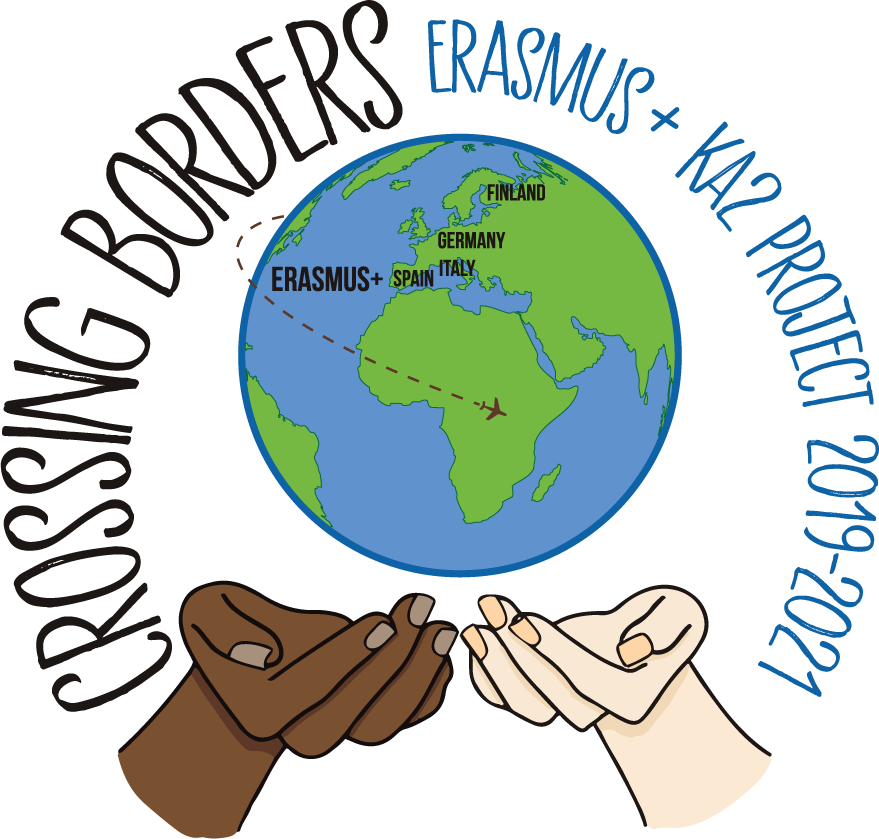Summary
Migration has existed from the beginning of mankind. The origin of primitive man is supposed to trace back to Africa. Migrations led men to come to Europe, and those original men were our ancestors. They were our mold; what we are now is the result of those migrations and the mix of cultures.
Every day we can some news of people trying to reach Europe, escaping from wars or trying to find work and a stable living; they’re migrants.
All of them migrate, having different reasons, different ways of traveling and different routes and destinations.
What do we really know about migration? Are our students aware of everything related to migration?
Our schools believe that our students need to get aware of migration. Help them to understand why they should support and assist those people migrating, and probably suffering, trying to reach their destinations.
We started an ambitious 36-month project where we worked on four main topics of migration. Each country has led one of them and suggested activities for their hosting mobility.
130 Students from all 4 countries have been involved in the mobilities; a group of ten students from every school did travel to each country.
The students were all aged between 15 and 18 years old.
The choice of activities pursued a common objective of getting to know, understand and integrate people from different countries. We felt that the best way to promote the values of non-discrimination and integration is to give our community the opportunity to gain knowledge on immigration as well as a real experience, and thus avoid prejudicial treatment and encourage a sympathetic awareness and inclusion of different people as part of your society.
A way to reach this great objective was to make our students act, to get involved in volunteering programs for immigrants in our neighborhoods, collaborate with social organizations, workshops with immigrants,etc.
We organized the most suitable division of the four topics among the countries: Origin (Spain),Transit and Gateways (Italy),Migrants Reception (Finland),Integration (Germany).
During Origins, we learned a bit of history and tried to understand where we came from, and the countries that currently are migrating to/from Europe.
During Transit we analyzed how people travel, look at costs, dangers, transit countries,etc.
During Migrants Reception we understood what people face when arriving at their destination, rights & duties, asylum, underage migrants, etc.
Finally, during Integration, we handled jobs, cultures, families, discrimination, facilities & barriers, cultural enrichment, etc.
During the mobilities students participated in workshops, survey-result sharing, and debates; they visited local NGOs, charities, and talked to experts on local immigration and integration policy. They discovered the cultural variety of each hosting country and learned about the history and roots while focusing on what we had in common rather than what divided us. We executed role-play activities to make our students understand the immigrant stories and “walk in their shoes”.
We have used eTwinning as the main communication system at starting of each mobility.
Having been in four different countries on the project has enabled us to get a much more varied and objective view of immigration than we could possibly have gotten in a local environment. All the data gathered by the four teams have been constantly contrasted. We have learned from each other, not only in respect of the European program and its management, but we have also acquired first-hand experience from regions which have taken in recently many immigrants (Fulda, Germany) or schools with study modules on multiculturalism and global issues, as well as special programs for underage refugees and immigrant families (Alppilan, Finland), among others.
Apart from obvious linguistic benefits, the raising social awareness of all participants has been our major impact. This new status will improve behavior towards immigrants.
The information has also been shared at school level, furthermore, material and results have been published on our school websites, social media, project website and other schools.
One of the other main objectives was the creation of material and a didactical tool kit on the general topic of migration in Europe. We have created several of them, like the immigrant dictionary and the exhibition.
Probably the most important of it has been the creation of “Synodeia”, an organization that is accompanying migrants in many ways and providing them with friendly human help and assistance. This organization uses facilities at the Valencia school, for sports, teaching or any assistance needed.
This project has also created new networks among our schools and widened our horizons. In short, taking part in this project has been a life experience, not only a learning one for the whole community involved in the project.
Students will benefit in the future from all their new relations created.
